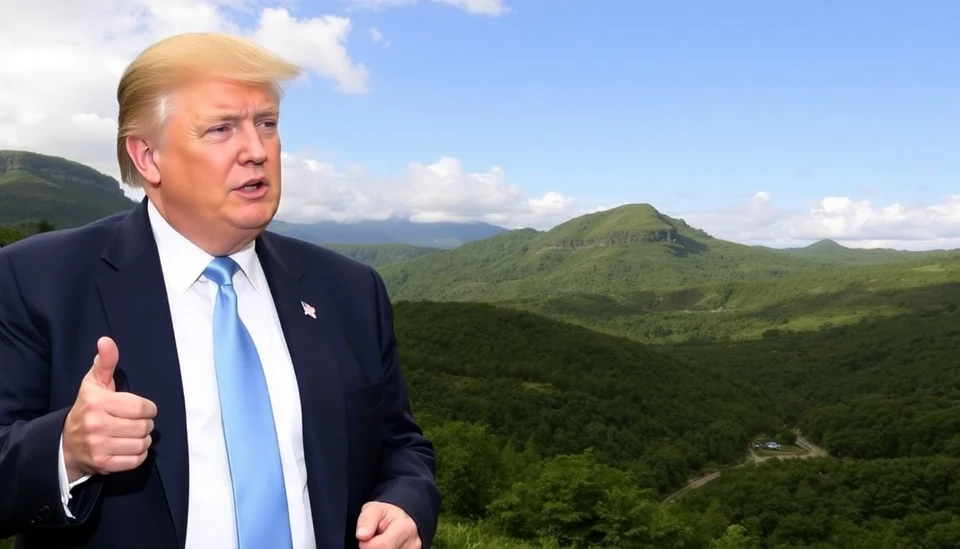
In a dramatic turn of events in international climate finance, former U.S. President Donald Trump's recent remarks have pushed Colombia into a crucial decision regarding its $40 billion climate initiative. This initiative, aimed at addressing environmental concerns and promoting sustainable development, is now under intense scrutiny as Colombia considers engaging with China for funding and support.
The backdrop of this situation is rooted in the geopolitical tensions that have dominated the global stage, particularly when it comes to climate agreements. Colombia, under its current administration, has been exploring ways to finance its ambitious climate goals, which include reforestation, renewable energy projects, and sustainable agriculture. The Colombian government had previously signaled a preference for U.S. partnerships, particularly in light of support from international forums and climate funders aligned with Western ideologies.
However, Trump's recent critique of Colombia's climate strategy has escalated discussions on the viability of engaging with China. Trump's statements reflect a growing sentiment in the U.S. regarding China’s increasing influence in Latin America and its potential implications for U.S. foreign policy and environmental strategies.
The Colombian government now faces a crucial dilemma: Should it persist in pursuing potential U.S. funding amid political rhetoric and uncertainty, or should it shift its focus toward developing ties with China, which has expressed readiness to invest in Colombia's climate initiatives? This decision could reshape not only Colombia's climate plan but also its relations with both global superpowers.
Experts warn that Colombia's reliance on China for funding might come with strings attached. While China has been enthusiastic in supporting climate projects globally, critics caution about the long-term debt implications and the geopolitical leverage it might gain through such arrangements. The potential for a bilateral deal may result in increased competition between the U.S. and China for influence in Colombia, stirring further conversations on sovereignty and dependence in climate policy.
The urgency of the situation is underscored by Colombia's dire environmental challenges, including deforestation in the Amazon and the impacts of climate change on agriculture. Therefore, the Colombian administration is under pressure to act swiftly, and the stakes couldn't be higher as they weigh their options for sustainable financial support.
As discussions progress, numerous domestic and international stakeholders are closely watching the developments. Environmental NGOs, local communities, and businesses who stand to benefit from a well-executed climate plan are eagerly awaiting clarity on the administration's path forward. With these multifaceted implications in mind, it is evident that Colombia is at a critical crossroads, balancing its ambitions for sustainable development against the turbulent waters of international diplomacy.
The implications of Colombia’s decision are set to reverberate throughout the region, impacting not just environmental policy but also the broader dynamics of Latin American geopolitics. As the world pivots toward sustainable practices, how Colombia navigates this situation will serve as a pivotal case in the ever-evolving relationship dynamics between the U.S., China, and Latin America.
As this story continues to unfold, observers and decision-makers alike are left pondering: what will be the ultimate path chosen by Colombia in this high-stakes international chess game?
#Trump #Colombia #China #ClimateDeal #SustainableDevelopment #Geopolitics #InternationalRelations #EnvironmentalFinance #LatinAmerica
Author: Megan Clarke




